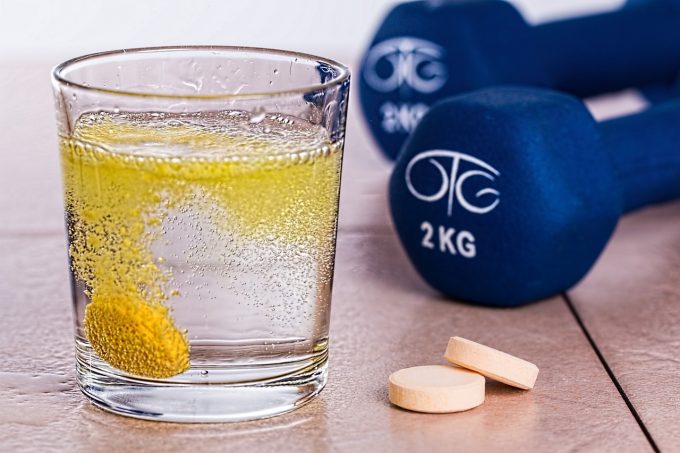Athletes are always searching for an edge. Whether it’s a weekend warrior who climbs 14’ers and enters sprint triathlons or a full-time competitor using his or her body as a mechanism to make money, the slightest improvement can inspire tangible benefits related to performance and recovery.
From Fitbits and heart rate monitors to bike computers and elevation masks the marketplace is constantly evolving when it comes to sport performance products and resources. While the analysis of performance metrics and data tracking is no doubt useful, could one of the easiest methods of improving performance be as simple as getting more color on your plate and eliminating food products that are disguised as quality fuel?
What a revolutionary concept! While pre-vegans often comment how food substitutions are so confusing among concerns about lack of nutrients and protein deficiency, plant-based performance nutrition isn’t overly complex. Are the mental blocks related to the perceived difficulty most of the battle? A seasoned plant-powered veteran will attest to the multiple benefits that come will a little experience, an open mind and a step outside the comfort zone.
With creativity and some simple tweaks any athlete can benefit from eating more plants. One of the easiest steps is eliminating as much processed food or food products, as possible. A friend who works in the health and fitness industry has a mantra that I think of often; ‘if it wasn’t food 100 years ago, it isn’t food today.’ How simple yet brilliant! As much as power bars are a convenient and often necessary part of an athlete’s toolbox, many of them are loaded with sugar and preservatives. Why not make your own? Try making bars or bites with dates and raisins or dried apricots as the base. From there, the combinations are endless. From mangoes and blueberries to any of your favorite nuts, you are bound to create some filling yet easy-to-digest treats for any field of play.
On various occasions I’ve heard another wise man, Sports R.D. Dave Ellis, utter another simple sentence that has long resonated with me. ‘Get some color on your plate.’ I try and make this a personal challenge as often as possible. A few weeks ago I was working a hockey camp with 14-year-old boys on the campus of Colorado College. The on-campus dining hall is fantastic, with various vegan options, farm-to-table choices and the best salad bar I’ve seen in recent memory. Featuring a copious amount of fresh veggies like beets, carrots, edamame and tomatoes and protein-packed grains such as quinoa, millet and bulgur, it’s easy to get 6-10 bright colors on your plate. One of major challenges is getting athletes of all ages to hit the salad bar before automatically defaulting to the other options that don’t pack nearly the same benefits for training and recovery. A plate packed with bright colors and dark, leafy greens won’t have as much room for the options too many athletes of all ages will gravitate to.
Any athlete concerned with performance will have to make the call regarding how committed he or she is related to training, performance and recovery. A food journal is an invaluable tool for nutrition tracking while determining the optimal foods (and amounts) to eat before, during and after workouts. There are tools everywhere such as videos from Vega and articles from One Green Planet to help fuel an active lifestyle. Fueling performance in athletics and life in general is a challenge to embrace and enjoy. Strive towards eating clean with some minor changes to see big results!
 An Arizona native who has lived in Minnesota, Montana, Texas and Saskatchewan, Canada, Matt Cunningham, VLCE, now calls Colorado home where he works with USA Hockey in coaching education and player development. While playing college hockey at Minnesota State University, Mankato, Matt earned degrees in Mass Communications and Sport Management. He recently completed Sports Nutrition (online) coursework with the Matthew Kenney Culinary Institute. A graduate of the Institute for Integrative Nutrition, eCornell’s certificate program in plant-based nutrition and Main Street Vegan’s Lifestyle Coach & Educator program, Matt is a two-time Ironman triathlon finisher. His plant-powered lifestyle also fuels mountain biking, skiing and other outdoor pursuits. A certified yoga teacher, Matt’s interests include vegan fashion, travel, film and entrepreneurship.
An Arizona native who has lived in Minnesota, Montana, Texas and Saskatchewan, Canada, Matt Cunningham, VLCE, now calls Colorado home where he works with USA Hockey in coaching education and player development. While playing college hockey at Minnesota State University, Mankato, Matt earned degrees in Mass Communications and Sport Management. He recently completed Sports Nutrition (online) coursework with the Matthew Kenney Culinary Institute. A graduate of the Institute for Integrative Nutrition, eCornell’s certificate program in plant-based nutrition and Main Street Vegan’s Lifestyle Coach & Educator program, Matt is a two-time Ironman triathlon finisher. His plant-powered lifestyle also fuels mountain biking, skiing and other outdoor pursuits. A certified yoga teacher, Matt’s interests include vegan fashion, travel, film and entrepreneurship.

